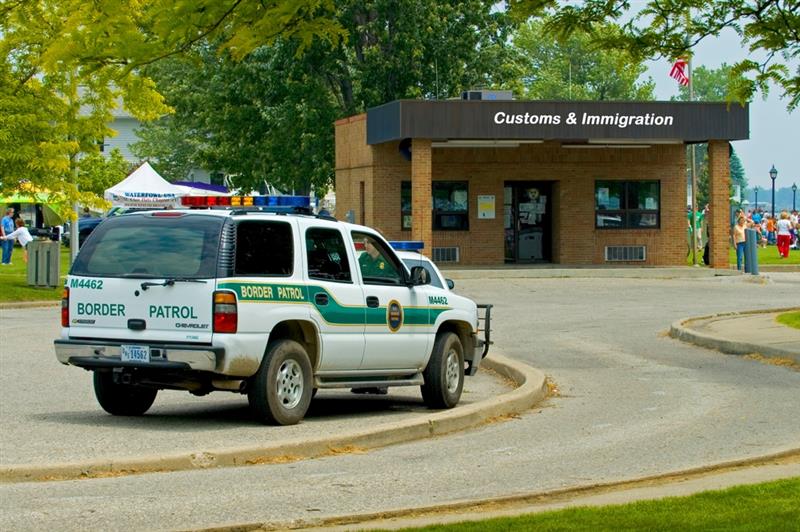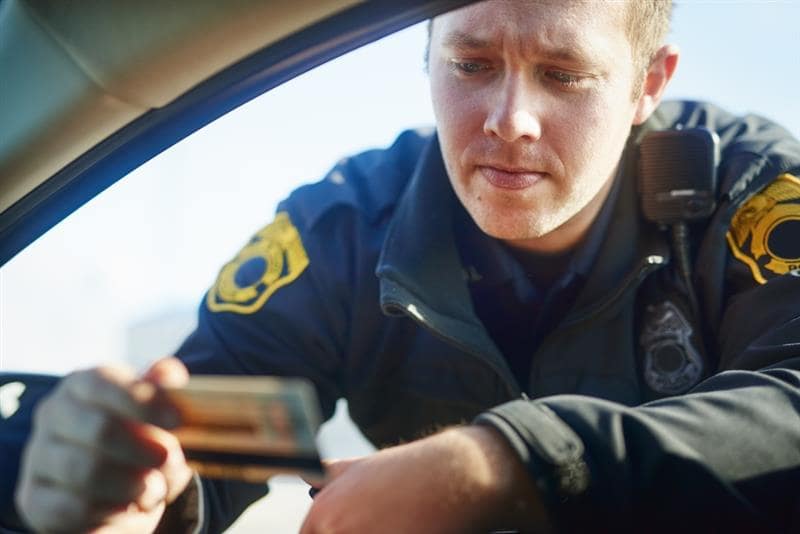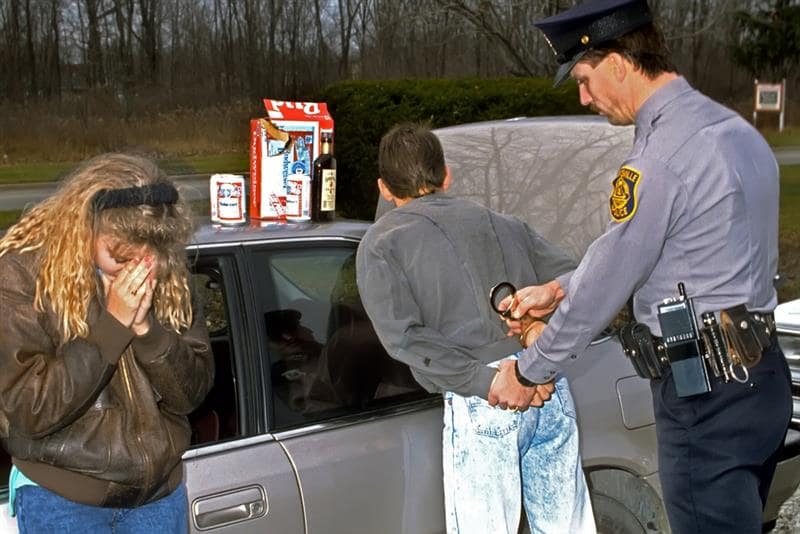<>Canada—the land of maple syrup, politeness, and hockey. It’s a dream destination for many. But have you ever been caught with one too many at happy hour? Or worse, ended up with a DUI on your record? Then that dream might feel as distant as a Stanley Cup for the Toronto Maple Leafs. The big question is: <>can you still cross the border to visit the Great White North (Canada) with a DUI?
Canada is famously friendly, but its border officials take a dim view of past DUIs. That’s because a DUI, while often treated as a misdemeanor in other countries, is considered a serious crime in Canada.
-Advertisement-.
We are about to take a sobering drive through the rules, exceptions, and (drumrolls) loopholes! This might just let you make it to the land of Tim Hortons and free healthcare.
Can Someone with a DUI Travel to Canada?
Unfortunately, simply presenting a valid US passport at the border is not enough to gain entry into Canada while intoxicated.
Translation: Your intentions are as pure as freshly fallen snow. But a DUI might slam the brakes on your plans to cross the border. And no, you can’t charm your way in with a heartfelt apology and a box of Timbits. The law is the law.

Regardless of whether it was a misdemeanor or a crime, you could be denied entrance into Canada. You could also be considered criminally ineligible. This is if you have ever been caught or found guilty of driving while under the influence of drugs or alcohol.
DUIs (including civil infractions and “physical control” violations) can result in deportation at the border. It can also affect your eligibility for all Canadian immigration programs. This is even if you have no intention of driving while in the country.
Did you know that even a DUI charge that is pending trial may be denied at the Canadian border? The reason is there is no presumption of innocence.
Why Does Canada Refuse to Let People Enter If They Have a DUI?
Indictable offenses, equivalent to US felonies, are regarded as significant criminalities in Canada. This is although summary offenses are seen as less serious (equivalent to US misdemeanors).
In Canada, driving while intoxicated is a hybrid offense. Meaning that, depending on the circumstances and the prosecutor’s wishes, it may be either a summary offense or an indictable one.
Driving while intoxicated is a potentially excludable act for foreign nationals. This is even though the majority of DUIs committed in Canada are just summary infractions. In summary, Canadian border officers treat a US DUI as a serious felony. This is because a misdemeanor DUI from the US is equivalent to an incident that could be deemed significant north of the border.

The difficulty of entering Canada after being charged with DUI shocks many Americans. Through the RCMP-run CPIC database, which interfaces with the US National Crime Information Center (NCIC), the Canadian border now has complete access to the FBI criminal database.
As a result, when a person shows their US passport at border screening, they may be immediately reported for DUI or DWI. The initial arrest will remain visible to border officials. The visitor may need to show their eligibility, a DUI arrest without a conviction—including an acquittal or not guilty verdict.
Legal Justification for Rejecting Americans with DUIs
Foreign nationals may be ineligible for Canada if convicted of an offense equivalent to an indictable offense in Canada.
IRPA Section 36 3a defines offenses prosecutable either way as indictable offenses. Canada denies entry to those convicted of hybrid offenses like DUI and other serious crimes such as assault, fraud, or drug trafficking.
Even a minor DUI in the US can permanently bar entry to Canada, as Canadian law treats DUIs seriously. A DUI reduced to reckless driving will still be seen as a DUI in Canada due to impairment.
An American can be denied entry even if charged with less serious offenses like careless or dangerous driving. “Dangerous operation” in Canada can block entry, as it mirrors a serious offense, even if it’s a minor traffic violation elsewhere. Civil DUI violations like DWAI or OWI may also prevent entry into Canada.
If you are facing a DUI charge, is it still possible to travel to Canada?
What the potential offense translates to under Canadian law is what counts when deciding whether a person with a DUI arrest is eligible to come to Canada, not how serious the charge was in the United States. The law that establishes whether a non-Canadian’s entry into Canada may be refused on the grounds of inadmissibility is the Immigration and Refugee Protection Act (IRPA).
A pending DUI accusation is considered to be “under indictment” under this Act, which may prevent a US citizen from entering. In the end, it is always the visitor’s responsibility to demonstrate their admissibility in the event that a Canada Border Services Agency (CBSA) officer challenges them.
A person who is arrested on suspicion of drunk driving may have significant difficulties if they attempt to enter Canada until they have sufficient evidence that they have no likelihood of ever being found guilty, such as proof of a dismissal. Therefore, your ability to travel to Canada may be abruptly terminated if you are pulled over while driving under the influence of alcohol.

From DUI to Denied: Canada’s Border Rules
Entering Canada can be challenging, even with a reduced DUI charge.
You may still be refused entry at the Canadian border if your DUI charge is dropped in favor of a less serious one like reckless or careless driving. This is due to the fact that risky operation is a serious offense north of the border, even when there is no impairment. It could take a lot of planning to get admitted to Canada if you have any arrest history at all.
Documented evidence of your favorable status could help you cross the border successfully if your misdemeanor DUI case was dropped or you were found not guilty. Still, it would be wise to speak with an experienced Canadian immigration lawyer before you go.
If You Won’t Be Driving, Is It Still Possible to Enter Canada with a DUI?
Even if a US person with a criminal record for driving under the influence won’t be using a car, truck, SUV, motorcycle, RV, boat, or any other motor vehicle while in Canada, they can still be prevented from entering the country.
Some individuals with a history of DUI believe that they will be admitted into Canada without any issues if they travel there and do not plan to drive. Whether a visitor plans to drive or not is not taken into account by Canadian immigration laws.
Therefore, regardless of their intended mode of transportation while in Canada, Americans with a DUI conviction may need to complete Criminal Rehabilitation or a TRP in order to enter the country.
Similarly to this, some Americans who have a DUI believe that they can cross the border as long as they are merely a passenger and not the driver.
Canada’s DUI Reality Check: Uber, Bus, or Not, You’re Not Getting In!
Canadian law states that a visitor’s mode of travel has no bearing on their admission. There is a good probability that border security will prevent you from entering Canada if you are inadmissible due to a DUI, regardless of whether you intend to utilize Uber or public transportation exclusively or if a friend, family member, or coworker would be driving you all the way.
Even though they were passengers in the car and had no intention of ever driving in Canada, our legal team has actually spoken to hundreds of US residents who were refused admission because of a prior DUI or DWI. Please be advised that even if you are not the driver, driving to Canada might be quite dangerous if you are ineligible due to a DUI conviction.
Additionally, some people think that if you don’t reveal your criminal history at the border, you can still enter Canada. This is completely untrue because the Canadian border has unrestricted access to US criminal records, and a visitor’s presence can be immediately flagged based on a prior charge or conviction.
It is advisable to always be truthful and open with border officials because trying to deceive them might have major repercussions, including a multi-year border crossing ban. Regardless of how long a visitor intends to stay in Canada, a DUI charge or conviction from the USA can result in their being turned back at a land border crossing or being arrested and sent home when they land at an airport. Due to a prior crime, border security has the authority to prevent a foreign citizen from entering Canada, even for a brief visit lasting less than 24 hours, such as a brief business trip.
Can Someone with a DUI for Drugs (But Not Alcohol) Enter Canada?
For Canadian border security officials to refuse admission for criminal activity, a DUI in the United States does not necessarily need to be tied to alcohol. It can be just as challenging to enter Canada with a DUI drug (DUID) as it is to enter the country with a DUI alcohol.
Driving while under the influence of any substance, legal or illicit, is illegal over the border, just as it may be illegal to drive after consuming wine, beer, or other alcoholic beverages.
Because they were “stoned” from marijuana usage or on prescribed drugs like painkillers, Americans are routinely charged with driving while intoxicated.
Regardless of whether the substance is legal or not, you could still face charges for driving while under the influence. In North America, it is prohibited to operate a motor vehicle while under the influence of a substance that “could affect the nervous system, brain, or muscles of a person as to impair”—even if a doctor prescribed the medication. As a result, driving under the influence of prescription medicines can result in a DUI, and a criminal conviction of this kind can result in expulsion from Canada without specific authorization.
Does the State in Which the DUI Occurred Matter?
Determining the precise criminal equivalency and excludability of their particular conviction is one of the main reasons why many Americans seek the advice of an expert immigration lawyer prior to attempting to enter Canada with a DWI.
The Canadian Federal Court of Appeal established the process for determining equivalence, holding that the exact statutory language utilized must define the fundamental aspects.
A person’s admissibility in Canada may be influenced by the US state where their violation occurred because state-by-state variations exist in DUI legislation (particularly under-21 DUI statutes) and the specific language of each act. State-by-state variations may also exist in the specific wording of documents pertaining to acquittal, unconditional or conditional discharge, court diversion, deferred adjudication, deferred prosecution agreement (DPA), deferred disposition (suspended sentence), probation before judgment (PBJ), expungement/dismissal, or pardon.
Charges of drunk driving can be made more complicated by additional infractions that are frequently added. Driving while intoxicated, not having auto insurance, causing property damage, fleeing an accident scene, speeding, and refusing a blood, chemical, or breathalyzer test are a few examples.
Even though it is a traffic infraction rather than a misdemeanor conviction, breaking several civil traffic statutes can also affect one’s admittance to Canada. It could be wise to discuss your specific circumstances with a qualified Canadian immigration lawyer if you are worried that you might be criminally ineligible to travel abroad.
Denied Entry to Canada?
You must wait until you are legally permitted to return to Canada if you have already been refused entrance due to a DUI conviction. In these situations, it is best to speak with an experienced Canadian immigration lawyer to determine the best course of action for future successful DUI entrance into Canada. You risk rejection and a complete ban from Canada if you try to enter through another port of entry without first addressing your DUI inadmissibility.
A US person should correct their inadmissibility before trying to cross the border again after they have been officially denied entrance to Canada due to a criminal record for driving under the influence. The likelihood of someone being allowed to enter the country with a DUI in the future can be considerably decreased by any perceived violation of CBSA regulations.
Therefore, if you are upset over being bounced at the border, it is crucial to avoid making any snap decisions. A refused tourist is often allowed to formally withdraw their application for admission to Canada with a DUI. In more severe situations, border guards in Canada may file a Section 44 Report and refer the matter to the Immigration and Refugee Board (IRB). A judge will next decide if the allegations in the Section 44 Report are true at an Admissibility Hearing, and if so, a Removal Order may be issued.
How a DUI Can Affect Travel to Canada
Certain Americans might want the assistance of a trained immigration specialist to find out if they can enter Canada lawfully with a DUI record. Some people may already be aware that they are criminally inadmissible, but they still need legal assistance to devise a practical strategy for safely crossing the Canadian border.
A single minor DUI can now permanently bar a foreign individual from entering Canada, even if they have no past criminal history. A criminal conviction for driving while intoxicated does not always mean that a person will never be permitted to cross the border; rather, it only indicates that they could need special government authorization before entering Canada.
Suppose all punishment has been completed for at least five years. In that case, a foreign national who is inadmissible to Canada due to an arrest or conviction in the past and does not want to leave the country may prepare and submit a Criminal Rehabilitation application.

Expunging a DUI while visiting Canada
For American citizens, traveling to Canada after being pardoned or discharged for a felony or with a DUI expungement might still be challenging. Sometimes, a county or state “pardons” or “discharges” a person’s crime or permits the record to be purged after a certain amount of time.
However, this does not ensure that the person can enter Canada normally, and they should think about speaking with an experienced lawyer to find out how CBSA officials would interpret the pardon.
An expunged misdemeanor may still be considered a full conviction in some circumstances, while in others, it may be comparable to a Record Suspension in the Great White North. Canadian border officials will still be able to see your DUI conviction even if it has been expunged or sealed in the United States.
Therefore, before visiting Ontario, Quebec, British Columbia, or any other region of Canada, anyone with a criminal record involving alcohol and driving in the United States should make sure they are adequately prepared.
There are instances where Canada has refused entrance to persons who have taken part in expunging programs and denied entry to those who have received a formal pardon from the local government.
Expunged DUI? You Might Still Be Locked Out of Canada!
Even if a DUI conviction is expunged, an American may still be denied entry to Canada. Canada only sometimes recognizes U.S. expungements as non-convictions, even with proper paperwork.
Consult a lawyer before entering Canada if you’ve had a DUI conviction, even if it’s expunged. A Legal Opinion Letter can clarify why you should be admitted to Canada despite the expunged DUI.
Any serious crime on your record may cause entry issues, even for tourism or family visits. Address DUI charges on your background check before traveling to Canada to avoid problems.
Border officials decide entry based on your DUI, circumstances, and reason for visiting Canada.
Flying vs. Driving to Canada with a DUI
Flying to Canada with a DUI does not formally boost one’s chances of being admitted compared to driving there because the legality of DUI travel to Canada is the same regardless of the mode of transportation employed. A DWI can prevent someone from entering Canada even if they won’t be operating a motor vehicle while there. This implies that even if the driver has a spotless record, a passenger in a car may be denied entry at the border if they have a history of driving under the influence.
Additionally, even if the person will not be renting a car and does not intend to drive while in Canada, flying in with a DUI can still be difficult.
It can be just as hard for American men and women to enter Canada with a DUI. Because both men and women are equally capable of drinking and driving while in Canada, there is no sex discrimination at the border. In summary, regardless of how they got to a port of entry, what they want to do inside Canada, how long they intend to remain, or how they look, any foreign national who has ever been found guilty of driving while intoxicated in the United States of America may be subject to a border refusal.
Those who are refused a NEXUS card due to a DUI may discover that the denial exposes their criminal history to the Canadian border, perhaps resulting in their future visit being refused admission. Therefore, before traveling to Toronto, Vancouver, Calgary, Montreal, Ottawa, or any other Canadian city, it is advised that any American who has been denied NEXUS due to a misdemeanor DUI speak with an experienced immigration attorney.
What About Other Driving Impaired Offenses?
You are undoubtedly aware by now that entering Canada with a DUI conviction may be quite challenging. However, what about other offenses that are associated with driving under the influence or while having a “buzz”? In the United States, the most popular abbreviation is driving under the influence (D.U.I.).
In Canada, nearly any DUI conviction is considered a serious felony. “Operating” includes controlling a parked vehicle, even without intent to drive. “Motor vehicle” covers cars, trucks, boats, motorbikes, ATVs, and dirt bikes.
DUI Acronyms That Could Stop Your Trip
Impaired driving charges can impact your eligibility to travel, including the following offenses:
- OMVI (Operating a Motor Vehicle while Intoxicated)
- OVI (Operating a Vehicle Impaired)
- DUIL (Driving Under the Influence of Liquor)
- DUII (Driving Under the Influence of an Intoxicant)
- OUI (Operating Under the Influence)
- DUAC (Driving with an Unlawful Alcohol Concentration)
- DWUI (Driving While Under the Influence)
- DUBAL (Driving with an Unlawful Blood Alcohol Level)
Civil traffic infractions like OWI and DWAI can bar Americans from entering Canada. Dropped charges like reckless or careless driving may still make you inadmissible under Canadian law.
Offenses like boating or golf cart DUIs can also create entry issues. Plan ahead if you have a DUI or similar offense on your record before traveling to Canada.
How to Travel to Canada While Intoxicated
Suppose an American has been convicted of driving under the influence. They can enter Canada by applying for a Temporary Resident Permit (TRP) or Criminal Rehabilitation (CR). Both applications are complex and require strong supporting documents.
Required documents may include:
- A driver’s abstract.
- Police records.
- Recommendation letters.
- Proof of sentencing completion.
- A personal explanation of the change.
DUI, Canada, and the Proof You’ll Need
A certificate of attendance at a MADD Victim Impact Panel, IID removal paperwork, or AA attendance can prove sentence completion.
If the DUI is old and records cleared, request a court clerk letter confirming disposition is unavailable. A document from the local police confirming no active arrest warrant may be needed for Canada entry with a DUI.
Immigration Canada doesn’t consider SR-22 insurance as part of the penalty, unlike DUI programs or court-imposed restrictions. The Canadian consulate may check for other offenses during the entry evaluation, including vandalism, theft, or assault.
While a DUI can affect Canadian entry, other misdemeanor or felony convictions can also cause issues. Foreign nationals with prior convictions may need to petition for Canadian entry clearance, like those with DUI convictions.

Evaluation at the Border
Canada Border Services Agency (CBSA) can deny entry to non-citizens for health, financial, criminal, or security reasons. Immigration officers decide the admissibility of visitors wishing to enter Canada on an individual basis.
Your friend’s entry to Canada with a DUI doesn’t guarantee you will be allowed in, too. Even if you’ve entered Canada with a DUI before, border officials assess each visitor individually, so re-entry isn’t guaranteed.
Can You Travel to Canada for Work if You Have a DUI?
Preparing in advance with rehab or an entry permit can make it easy to enter Canada for work. Many Americans don’t know a DWI can block their entry unless detained by CBSA.
Can someone with a DUI enter Canada? Even DUI lawyers may not know a conviction could affect international travel. If you’re criminally ineligible due to a DUI, you may face canceled plans or a TRP request at the border.
Getting special authorization to enter with a misdemeanor is difficult, but business travelers can sometimes cross with a DUI.
The DWI Dilemma of Entering Canada
For a TRP application, include details about the arrest and the importance of entering Canada. Each TRP application is unique. Approval for others doesn’t guarantee approval for you. Police stops are evaluated differently based on circumstances, like random checkpoints versus suspected speeding or lane violations.
Blood tests or field sobriety results impact TRP applications, distinguishing between intoxicated and mildly intoxicated driving. The need to enter Canada for work, like with a company or as a pilot, differs from vacation plans.
Entry into Canada for DUI with a History of Convictions
If convicted of DUI, you can enter Canada by getting a Temporary Resident Permit waiver. Or you can complete rehabilitation at a government office or border station. However, it could be difficult to petition for a TRP or Criminal Rehabilitation if a person gets multiple DUIs.
A second DUI offense makes it harder to enter Canada, as authorities may doubt your change in behavior. Americans with a DUI history may avoid traveling to Canada due to entrance restrictions for individuals with criminal records.
Crossing the Border – DUIs, Decisions, and a Dash of Uncertainty
An immigration lawyer cannot predict if someone with a DUI will enter Canada or guarantee a TRP or Rehabilitation. Lawyers assess an application’s strength but cannot predict IRCC or CBSA approval, as that decision isn’t certain.
Every situation is different, and previous outcomes may not always present future outcomes. One American with three DUIs may be approved, while another with two DUIs may not.
An incomplete application, missing documents, or the officer’s judgment can impact the decision to enter Canada after a DUI.
Another important factor may be the reason for a person’s visit to Canada. Professionals often need to enter Canada for work despite a DUI. For example, a programmer might attend a Vancouver conference, or a banker might close a deal in Toronto.
How Likely Is It That Someone with a DUI Will Enter Canada?
‘What are my odds of entering Canada with a DUI?’ is a question that many people ask themselves. This is when deciding whether or not to bother applying for a TRP.
No respectable expert can ever give a precise chance of success because every person’s circumstances are different.
What happens if you are refused admission to Canada? This is another wise question. Some may risk denial for a short vacation. But the risk increases for a business trip while intoxicated.
The easiest way to gain entry is by applying for a Temporary Resident Permit or Criminal Rehab before your trip.
How Can I Get Help from a Lawyer to Enter Canada?
When filing for Canada entrance with a DUI, some Americans seek legal assistance from a qualified professional. Many people look up information on how to go to Canada while intoxicated online. However, there is a lot of false material available.
Determining how a US crime matches Canada’s Criminal Code can be difficult. For example, Canada may not have a similar offense. Canada’s DUI rules changed in 2018, complicating the comparison for US convictions. Legal help is needed to know who requires TRP or Criminal Rehabilitation.
The presumption of innocence until proven guilty doesn’t apply at the Canadian border. Even without a conviction, charges that would be indictable in Canada may prevent entry. CBSA officials may still question you about past drunk driving arrests or charges.
DUI Dilemma? How to Cross the Border Without Crossing the Line
A skilled admissibility attorney can assist Americans with a DUI misdemeanor in obtaining a Rehabilitation or Temporary Resident Permit.
Some people choose to avoid Canada. This is because they find the country’s laws regarding DUI immigration to be so frightening or bothersome. Others, however, may find their job at risk. This is if they are unable to travel to Canada for work due to a DUI accusation or conviction. In these situations, a person would frequently ask for special authorization to enter Canada with a DUI. This would entail proving that they are a law-abiding citizen who will never drive again after consuming alcohol.
<>As you read this, you must still be thinking: Can I enter Canada with a DUI?
Legal Ways to Enter Canada with a DUI
A person must properly apply for and then be granted permission by Canadian authorities. Without expert help, the extremely complicated legal process of obtaining such permission to visit Canada may easily overwhelm a person. There are two methods to get past criminal inadmissibility to Canada due to a DUI or DWI:
Temporary Solution
The first option is a Temporary Resident Permit (TRP), which, if a person with a DUI has a good cause for visiting, can let them enter or remain in Canada for a set amount of time.
If an individual’s application is strong enough, a TRP may be valid for several visits for up to three years. Applying well in advance of the date you plan to travel is advised. This is because obtaining a Canada TRP might take some time.
Permanent Solution
The second alternative is Criminal Rehabilitation (CR). This is an application process wherein an individual requests that Canadian immigration authorities permanently forgive their previous DUI conviction.
What would be the eligibility? Five years must have elapsed after the completion of the sentence. This includes the payment of penalties, community service, classes, probation, and any other requirements the court may have imposed.
A person who completes the rehabilitation procedure is given a new beginning. They would be able to reenter Canada without restriction. Criminal Rehabilitation can grant entrance to Canada for life. This never needs to be renewed. This is in contrast to a Temporary Resident Permit, which is only valid for a set period.
Do you know that this is a simple procedure and peace of mind is priceless? You can visit Canada at any time without ever fearing that you may be denied entrance for a DUI. This solution is particularly alluring to qualified persons, whether they are traveling for business or pleasure.
Deemed Rehabilitation
In Canada, Americans with one non-major offense may qualify as “deemed rehabilitated.” Also, enough time should have elapsed since the end of all sentencing, including probation.
Prior to December 2018, Canadian authorities would have overlooked a past DUI conviction. This allows entry if tourists prove over ten years have passed since completing their sentence. Also, they had no previous criminal history.
Since then, this policy has changed!
As of December 2018, DUIs are considered serious crimes in Canada. After ten years, they are no longer eligible for automatic Deemed Rehabilitation.
It may be possible to claim “grandfathered” Deemed Rehabilitation if the violation occurred before December 18, 2018 (the date the legislation changed) and has been more than ten years old. However, it is crucial to speak with a Canadian immigration lawyer to find out your eligibility.
What Does it Mean?
Any American with a history of DUI, DWI, OWI, OVI, OUI, DWAI, wet reckless, or any other intoxicated driving arrest or conviction should consult a professional regarding their admissibility before trying to enter Canada, as impaired driving is now regarded as a serious crime in that country.
You may be denied entry at the Canadian border without a Temporary Resident Permit or Criminal Rehabilitation, even after more than 20 years, if you have two or more drunk driving infractions or other excludable criminal convictions on your record. You will probably never be considered rehabilitated by time.
Dark Truths and Final Tips
Crossing into Canada with a DUI isn’t impossible, but it requires patience, planning, and paperwork—lots of paperwork. Consider hiring an immigration lawyer to navigate the complexities, especially if you’re in a hurry.
Ultimately, Canada wants to ensure that visitors respect its laws and aren’t a threat to public safety.
Rehabilitate yourself. Chances are you’ll be able to share a poutine and a polite nod with your Canadian neighbors soon enough.
So, can you go to Canada with a DUI? Maybe. But next time, let someone else drive. Or at least make your life decisions sober enough that Canada won’t keep you out. Cheers (responsibly).
Common Questions Answered
Can I still travel to Canada if I have a DUI on my record?
What if my DUI was a long time ago?
Can I enter Canada if I’m not planning to drive?
Can I get a waiver or permit to enter Canada with a DUI?
What other driving offenses can affect my entry to Canada?
How can I improve my chances of entering Canada with a DUI?
1. Consult with an immigration lawyer to understand your specific situation and explore potential options.
2. Gather all relevant documentation, such as court records, police reports, and any evidence of rehabilitation.
3. Be honest and transparent with Canadian border officials.
4. Be prepared to answer questions about your DUI and any other criminal history.
The post Going to Canada with a DUI? The Maple Leaf May Have Questions appeared first on Way Blog.








